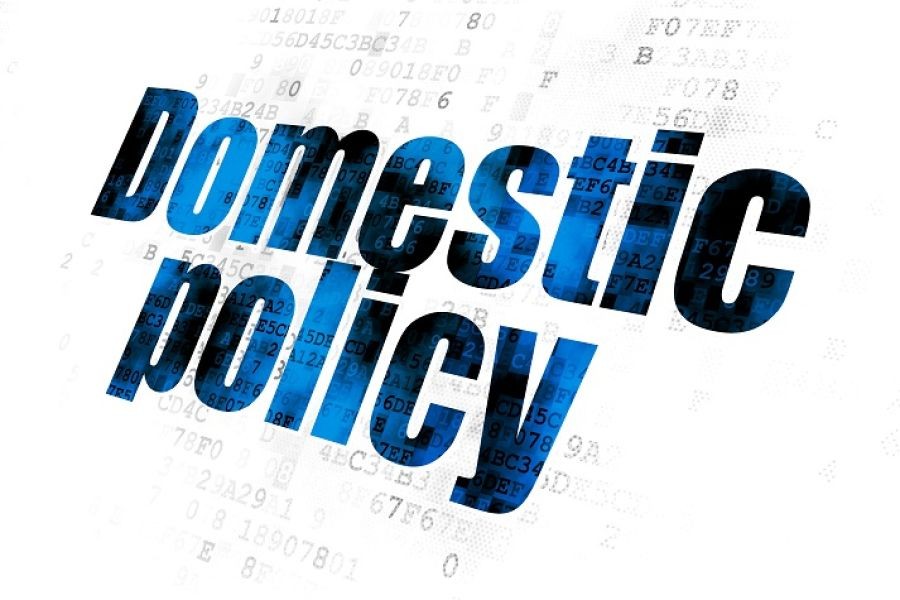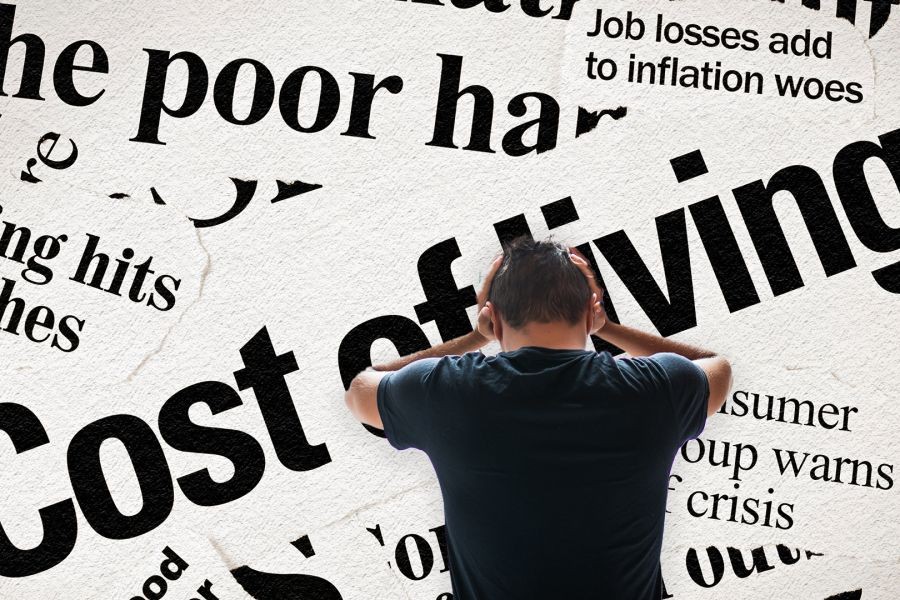Global events have a profound influence on domestic policy decisions, shaping the economic and social landscape of countries worldwide. For property investment specialists in New Zealand, understanding these dynamics is crucial for making informed decisions and capitalizing on opportunities. In recent years, events such as the COVID-19 pandemic, geopolitical tensions, and technological advancements have significantly impacted policy frameworks, prompting nations to adapt swiftly to protect their economies and citizens.
Debate & Contrasting Views: The Impact of Global Events on Domestic Policy
The debate surrounding the influence of global events on domestic policy is multifaceted, with opinions ranging from viewing these events as catalysts for positive change to perceiving them as sources of instability. Advocates argue that global events drive innovation and foster collaboration among nations, leading to more robust policy frameworks. Critics, however, contend that such events can create uncertainty, disrupt markets, and challenge traditional governance structures.
Advocates' Perspective: Catalysts for Positive Change
Proponents of the view that global events serve as catalysts for positive change highlight several key points:
- Innovation and Adaptation: Global events often necessitate rapid innovation and adaptation. For example, the COVID-19 pandemic accelerated digital transformation across industries, forcing businesses to adopt new technologies and work models.
- International Collaboration: Crises often lead to increased collaboration among nations, resulting in more comprehensive and coordinated policy responses. The global response to the pandemic, including vaccine development and distribution, exemplifies this trend.
- Policy Modernization: Global events can drive the modernization of existing policies. In New Zealand, for instance, the government has introduced measures to support the digital economy, recognizing the importance of technology in a post-pandemic world.
Critics' Perspective: Sources of Instability
On the other hand, critics argue that global events can introduce instability and exacerbate existing challenges:
- Market Disruptions: Global events can disrupt markets, leading to economic volatility. The 2008 financial crisis, for example, had far-reaching effects on global economies, including New Zealand's.
- Policy Overload: Rapid changes in response to global events can result in policy overload, where governments struggle to manage multiple crises simultaneously. This was evident during the pandemic, as countries balanced public health concerns with economic recovery.
- Geopolitical Tensions: Global events can heighten geopolitical tensions, impacting international relations and trade. The ongoing trade tensions between the US and China, for instance, have implications for global supply chains and trade policies.
Pros and Cons Evaluation: The New Zealand Context
In evaluating the pros and cons of global events' influence on domestic policy, it is essential to consider the unique context of New Zealand. As a small, open economy, New Zealand is particularly susceptible to global shocks, yet it also has the agility to implement responsive policy measures.
Pros
- Economic Resilience: New Zealand's ability to adapt to global events has contributed to its economic resilience. For instance, the country's swift response to the pandemic, including border closures and fiscal stimulus, helped mitigate the economic impact.
- Innovation in Policy: Global events have spurred innovation in policy-making. The New Zealand government has embraced digital solutions, such as e-government services, to enhance efficiency and accessibility.
- Increased Trade Opportunities: Despite geopolitical tensions, New Zealand has capitalized on new trade opportunities, particularly in the Asia-Pacific region. The Comprehensive and Progressive Agreement for Trans-Pacific Partnership (CPTPP) exemplifies this approach.
Cons
- Vulnerability to External Shocks: New Zealand's reliance on global trade makes it vulnerable to external shocks. The disruptions in global supply chains during the pandemic highlighted this vulnerability.
- Policy Dependence on External Factors: Domestic policies are often influenced by external factors beyond New Zealand's control. For instance, interest rate decisions by major central banks impact New Zealand's monetary policy.
- Economic Inequality: Global events can exacerbate existing economic inequalities. The pandemic, for example, disproportionately affected low-income households and small businesses in New Zealand.
Real-World Case Studies: New Zealand's Response to Global Events
Case Study: New Zealand's Pandemic Response
Problem: When the COVID-19 pandemic struck, New Zealand faced the challenge of preventing widespread transmission while minimizing economic disruption. The government needed to implement effective public health measures without crippling the economy.
Action: New Zealand adopted a 'go hard, go early' approach, implementing strict lockdowns and border controls. Simultaneously, the government introduced a comprehensive fiscal stimulus package, including wage subsidies and support for businesses.
Result: New Zealand successfully contained the virus, with relatively low infection rates and fatalities. The economy rebounded quickly, with GDP growth of 5.1% in 2021 (Stats NZ). The country's response garnered international praise as a model of effective crisis management.
Takeaway: New Zealand's proactive and decisive response to the pandemic highlights the importance of swift action and comprehensive policy measures in mitigating the impact of global events.
Case Study: The Impact of trade agreements
Problem: As a trading nation, New Zealand faced uncertainties due to shifting global trade dynamics, including Brexit and US-China tensions. Ensuring continued access to key markets was a priority.
Action: New Zealand pursued new trade agreements, such as the CPTPP and the New Zealand-UK Free Trade Agreement, to diversify its trade partnerships and reduce reliance on any single market.
Result: These agreements have bolstered New Zealand's trade relationships, with exports to CPTPP countries increasing by 8% in 2022 (MBIE). The diversification of trade partners has enhanced economic resilience and provided new growth opportunities.
Takeaway: Strategic trade agreements are vital for reducing vulnerability to global trade disruptions and ensuring long-term economic stability.
Data-Driven Analysis: The Role of Statistics in Policy Decisions
Data and statistics play a crucial role in shaping policy decisions, providing policymakers with insights into economic trends and potential impacts. In New Zealand, government agencies such as Stats NZ and the Reserve Bank of New Zealand (RBNZ) provide valuable data to inform policy-making.
- Housing Market Trends: According to Stats NZ, the median house price in New Zealand increased by 27% in the year ending March 2024. This data underscores the need for policies addressing housing affordability and supply constraints.
- Labor Market Insights: The unemployment rate in New Zealand fell to 3.3% in the first quarter of 2024 (MBIE), highlighting the recovery of the labor market post-pandemic. Policymakers can use this data to assess the effectiveness of employment initiatives.
- Inflation and Monetary Policy: The RBNZ's inflation target range of 1-3% guides monetary policy decisions. With inflation reaching 4.5% in 2024, the RBNZ has signaled potential interest rate hikes to curb inflationary pressures.
Common Myths & Mistakes in Understanding Global Events
Misconceptions about the impact of global events on domestic policy can lead to misguided decisions. Here are some common myths and the realities:
- Myth: "Global events have a uniform impact on all countries." Reality: The impact of global events varies based on a country's economic structure, policy frameworks, and resilience. New Zealand's unique position as a small, open economy means it experiences global events differently from larger economies.
- Myth: "Domestic policies are purely reactive to global events." Reality: While global events influence domestic policies, countries also proactively shape policies to align with long-term goals. New Zealand's focus on sustainability and digital transformation demonstrates proactive policy-making.
- Myth: "Global events only bring negative consequences." Reality: While global events can pose challenges, they also present opportunities for growth and innovation. New Zealand's digital economy has thrived amid global disruptions, showcasing the potential for positive outcomes.
Future Trends & Predictions: Navigating the Next Decade
Looking ahead, several trends are likely to shape the influence of global events on domestic policy decisions in New Zealand:
- Digital Transformation: As technology continues to evolve, digital transformation will remain a key focus for New Zealand. The government is expected to invest in digital infrastructure and skills development to enhance competitiveness.
- Sustainability Initiatives: Environmental sustainability will drive policy decisions, with New Zealand aiming to achieve carbon neutrality by 2050. This commitment will influence sectors such as energy, transportation, and agriculture.
- Geopolitical Realignments: Shifts in global power dynamics will require New Zealand to navigate complex geopolitical landscapes. Strengthening trade relationships and diversifying markets will be crucial for economic resilience.
Conclusion: Final Takeaway & Call to Action
Understanding the influence of global events on domestic policy decisions is essential for property investment specialists and businesses in New Zealand. By recognizing the opportunities and challenges presented by these events, stakeholders can make informed decisions that drive growth and resilience.
What’s Next? Stay informed about global trends and their potential impact on New Zealand. Engage with industry experts, participate in policy discussions, and explore innovative solutions to navigate the evolving landscape.
Call to Action: Join the conversation! Share your insights and experiences in the comments below. How have global events influenced your investment decisions? What strategies have you found effective in adapting to changing circumstances?
People Also Ask (FAQ)
- How do global events impact New Zealand's economy? Global events like the COVID-19 pandemic and geopolitical tensions influence New Zealand's economy by affecting trade, investment, and policy decisions, necessitating adaptive strategies to maintain resilience.
- What are the biggest misconceptions about the impact of global events? A common myth is that global events uniformly affect all countries. In reality, the impact varies based on each country's economic structure and policy frameworks.
- What strategies can New Zealand adopt to navigate global events? New Zealand can enhance resilience by diversifying trade partnerships, investing in digital infrastructure, and prioritizing sustainability initiatives to mitigate the impact of global events.
Related Search Queries
- Impact of global events on New Zealand economy
- New Zealand trade agreements and global events
- How global events influence New Zealand policies
































lavonbragg7787
11 months ago